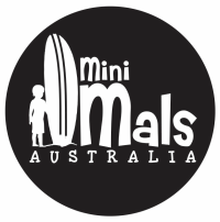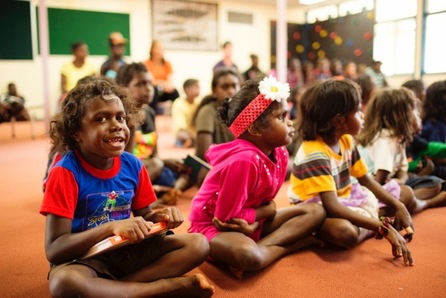Where else in the world can you hear eyewitness accounts of the last ice age? Archaeologists believe aboriginal Australians have been occupying this continent for well over 50 thousand years… passing down their traditions, knowledge and culture through stories. During this time a vast number of languages and dialects evolved.
Although it is estimated that we have lost over 75% of the estimated 260 languages that existed before European arrival (1) there is hope that the remaining 60 odd languages (2) still in use can be preserved. Embedded in these languages are thousands of years of culture and stories. As Australians, whether we are black, white, or some colour in the middle, we should be aware of and celebrate the diversity of Australian aboriginal languages that have managed to survive to this day. The stories contained in these languages are not only essential to preserving aboriginal culture… they should be embraced by all Australians, because they tell the ancient stories of this land.
Unfortunately, many of the languages have been lost forever. The last speaker of the Palawa languages of Tasmania, Mrs. Fanny Chocrane Smith (1834-1905) can be heard here on the wax recording below (Warning to aboriginal persons: the below audio track is the voice of a deceased person) You can learn more about fanny chocrane smith here.
Although it is estimated that we have lost over 75% of the estimated 260 languages that existed before European arrival (1) there is hope that the remaining 60 odd languages (2) still in use can be preserved. Embedded in these languages are thousands of years of culture and stories. As Australians, whether we are black, white, or some colour in the middle, we should be aware of and celebrate the diversity of Australian aboriginal languages that have managed to survive to this day. The stories contained in these languages are not only essential to preserving aboriginal culture… they should be embraced by all Australians, because they tell the ancient stories of this land.
Unfortunately, many of the languages have been lost forever. The last speaker of the Palawa languages of Tasmania, Mrs. Fanny Chocrane Smith (1834-1905) can be heard here on the wax recording below (Warning to aboriginal persons: the below audio track is the voice of a deceased person) You can learn more about fanny chocrane smith here.

These languages need to preserved not only for cultural purposes but for educational as well. Imagine the difficulty one faces in school when you are being taught lessons in a language which is not spoken at home. This has been a long-standing practice (and government policy) in australia. This frustration can lead to the children dropping out of school. In fact, only 40% of Aboriginal children stay at school until year 12, compared to 76% among non-Indigenous children (3).
The Australian Literacy and Numeracy Foundation’s (ALNF) Wall of Hands Campaign aims to assist remote Aboriginal communities by using a Communities ‘First Language’ to bridge the literacy gap. By providing ‘specialised support and resources to community members and children in their First Language...' the children are enabled 'to transition into Standard Australian English literacy competence.’
By supporting the ‘Wall of Hands’ campaign, we can not only assist Aboriginal Australians learn English, which helps secure their future, we can assist them to maintain their languages, which helps secure their incredible past... for them... and all australians, whether we are black, white, or some colour in the middle!
to donate to the 'wall of hands' campaign… or just learn more… click here.
1. National Indigenous Times 135 p.13 (40%)
2. 'Aboriginal Languages', NSW Department of Aboriginal Affairs, daa.nsw.gov.au/landandculture/language.html
3. 'Language likely to have started with ahdn signals: study', SMH 28/6/2014
The Australian Literacy and Numeracy Foundation’s (ALNF) Wall of Hands Campaign aims to assist remote Aboriginal communities by using a Communities ‘First Language’ to bridge the literacy gap. By providing ‘specialised support and resources to community members and children in their First Language...' the children are enabled 'to transition into Standard Australian English literacy competence.’
By supporting the ‘Wall of Hands’ campaign, we can not only assist Aboriginal Australians learn English, which helps secure their future, we can assist them to maintain their languages, which helps secure their incredible past... for them... and all australians, whether we are black, white, or some colour in the middle!
to donate to the 'wall of hands' campaign… or just learn more… click here.
1. National Indigenous Times 135 p.13 (40%)
2. 'Aboriginal Languages', NSW Department of Aboriginal Affairs, daa.nsw.gov.au/landandculture/language.html
3. 'Language likely to have started with ahdn signals: study', SMH 28/6/2014


 RSS Feed
RSS Feed

